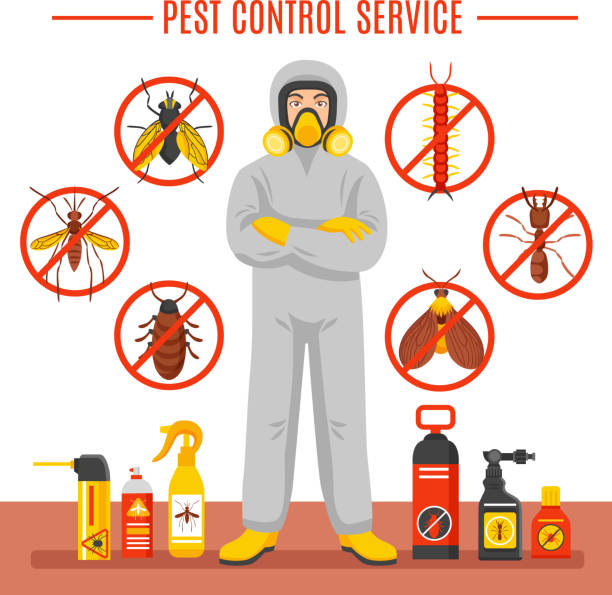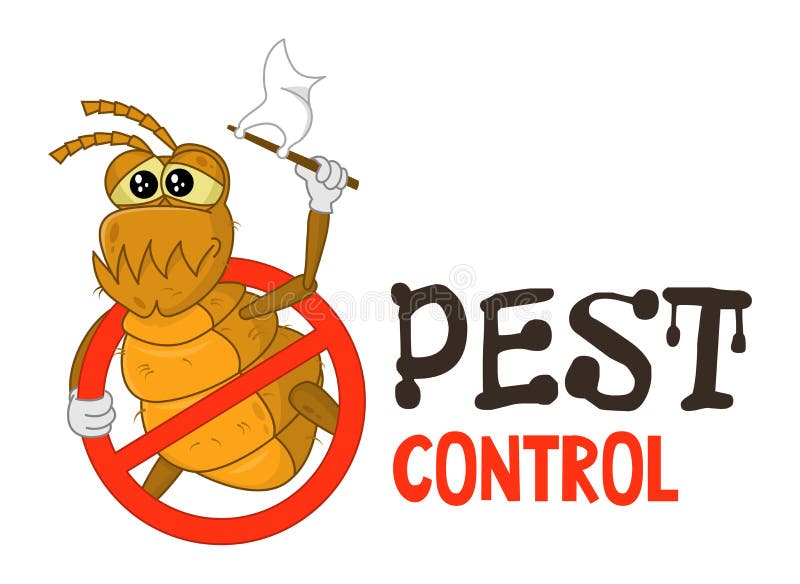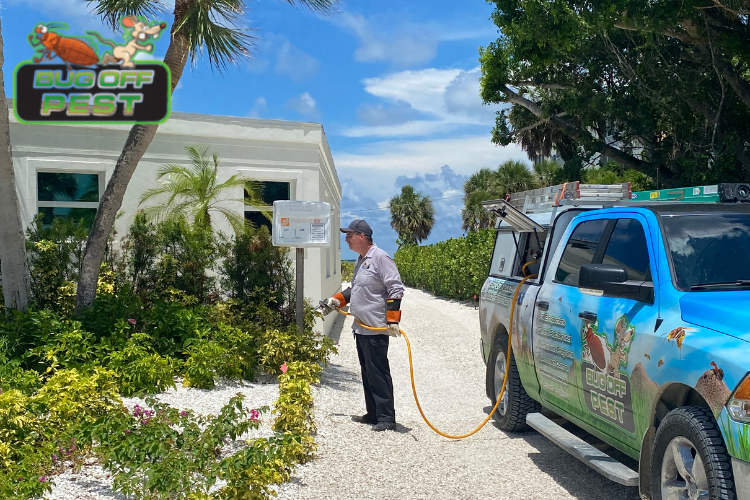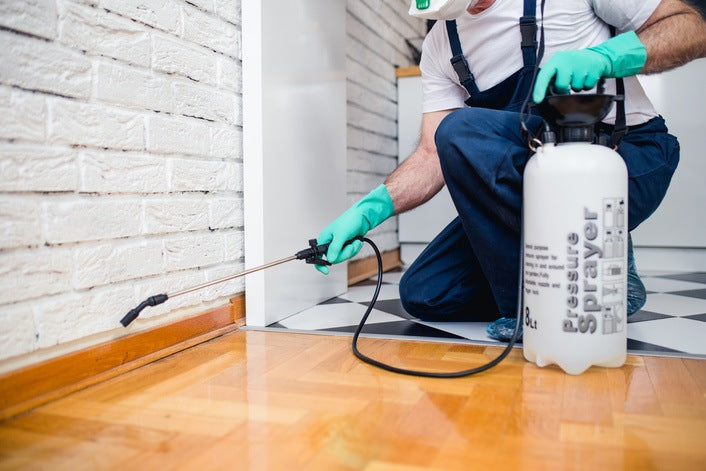Professional Mosquito Control Services for a Comfortable Outdoor Living Space
Reveal the Value of Insect Control in Keeping a Healthy And Balanced Environment and Treatment Strategies

The Role of Bugs in Ecosystems
Bugs, frequently watched entirely as hassles, play a multifaceted function in ecosystems that is crucial for maintaining environmental equilibrium. They contribute substantially to numerous ecological procedures, consisting of pollination, nutrient biking, and pest control. Numerous insect types, such as butterflies and , are crucial pollinators for a broad variety of plants, which in turn sustains biodiversity and food manufacturing.
In addition, pests act as victim for numerous predators, producing an important web link in food webs. This interdependence makes sure the survival of different varieties and aids regulate populations within environments (Termite treatment Port Charlotte). In addition, decomposer parasites, such as particular beetles and fungis, contribute in breaking down natural issue, therefore enhancing dirt and promoting nutrient recycling.
On the other hand, while insects can be useful, their overpopulation or invasion into non-native environments might interfere with these eco-friendly functions. This complexity highlights the significance of understanding pest characteristics, as efficient insect management approaches need to think about both their ecological roles and possible influence on human activities. Stabilizing pest existence while minimizing injury is necessary for protecting the integrity of ecological communities and guaranteeing agricultural performance.
Health And Wellness Risks Connected With Insects
The presence of parasites in different settings prolongs past their environmental roles, as they likewise pose substantial health threats to animals and people. Many bugs, including parasites, rats, and insects, are service providers of diseases that can have significant health and wellness effects. Rodents are understood to send hantavirus and leptospirosis, both of which can lead to severe breathing and kidney concerns, respectively.
Bugs such as ticks and mosquitoes are well known for spreading vector-borne illness like jungle fever, dengue fever, and Lyme disease. These health problems can cause high morbidity and mortality rates, especially in at risk populations. In addition, insects like roaches and insects can intensify allergies and bronchial asthma, adding to respiratory system problems in individuals, especially those with pre-existing conditions.
Moreover, the visibility of parasites can bring about emotional stress and discomfort, impacting overall well-being. Contamination of food and surfaces by insect droppings and continues to be can bring about foodborne ailments, highlighting the relevance of keeping hygienic problems. Understanding the health and wellness risks associated with pests is critical in identifying the requirement of effective pest monitoring methods to secure human and animal wellness.

Benefits of Effective Insect Control
Efficient parasite control is essential for keeping a risk-free and healthy setting, as it consistently mitigates the numerous dangers connected with insect infestations. Among the main advantages of reliable bug monitoring is the reduction of carcinogen. Bugs such as insects, rats, and cockroaches are vectors for illness that can influence both family pets and people. By managing these populaces, the probability of disease transmission is considerably decreased.
Additionally, reliable bug control safeguards building and structures from damages. Numerous bugs, like termites and woodworker ants, can create substantial structural damage that may call for costly repair services. By proactively taking care of these homeowners, companies and infestations can shield their financial investments.
An additional considerable advantage is the improvement of general lifestyle. A pest-free setting contributes to psychological well-being and minimizes anxiety connected with infestations. Effective parasite control promotes a safer environment for pet dogs and children, ensuring that homes stay refuges complimentary from disease-causing organisms and hazardous chemicals.
Common Pest Control Techniques

In the realm of insect administration, different strategies are employed to battle infestations successfully. These methods can be extensively categorized right into three primary methods: social, mechanical, and chemical controls.
Social control entails changing techniques to minimize bug reproduction, survival, and facility. This might consist of plant turning, proper cleanliness, and habitat control, which collectively produce an atmosphere much less for pest proliferation.
Mechanical control utilizes physical methods to eliminate visit this page pests (Termite treatment Port Charlotte). Methods such as catches, vacuum cleaners, and barriers are typically utilized to straight eliminate bugs from a location. This method is specifically effective for managing rats and insects without making use of damaging chemicals
Chemical control involves the application of pesticides to manage insects. These compounds can be categorized right into insecticides, fungicides, and herbicides, each targeting details sorts of pests. It is critical to use these chemicals judiciously, sticking to safety guidelines and guidelines to lessen possible injury to non-target varieties and the atmosphere.
Each bug control method has its advantages and limitations, and often, an incorporated technique integrating numerous techniques generates the very best cause keeping a pest-free setting.
Sustainable Parasite Management Practices
Lasting bug monitoring techniques include a series of techniques developed to hop over to here minimize environmental influence while successfully controlling pest populations. These methods prioritize the usage of ecologically pleasant methods over chemical pesticides, thereby lowering the threat of harm to non-target species, including helpful bugs, wildlife, and people.
Integrated Insect Administration (IPM) is a cornerstone of sustainable methods, incorporating biological, social, mechanical, and chemical tactics to handle bugs. As an example, biological control includes presenting all-natural killers or parasites to subdue parasite populations. Cultural methods, such as plant rotation and polyculture, interrupt pest life cycles and enhance ecological community resilience.
Mechanical methods, such as obstacles or catches, can successfully protect against insect accessibility without chemical intervention. Furthermore, preserving healthy and balanced ecological communities via correct soil administration, plant health and wellness, and biodiversity can naturally reduce bug issues.
Education and learning and awareness are important components, encouraging people and communities to recognize insect risks early and carry out safety nets. Termite treatment Port Charlotte. By fostering an all natural strategy that balances parasite control with ecological integrity, sustainable bug monitoring methods not only protect frameworks and plants yet also add to a healthier setting for future generations
Conclusion

Recognizing the wellness risks associated with parasites is vital in identifying the necessity of efficient pest administration techniques to safeguard animal and human wellness.
Reliable parasite control is crucial for keeping a healthy and safe environment, as it consistently reduces the numerous threats connected with parasite infestations.Integrated Pest Administration (IPM) is a cornerstone of sustainable techniques, incorporating organic, social, mechanical, and chemical tactics to take care of insects. By comprehending the duty of parasites, recognizing connected health risks, and employing varied treatment methods, a lasting technique to pest administration can be attained. Integrated Pest Administration (IPM) stresses a holistic methodology that mitigates damage to useful organisms while properly controlling insect populaces.